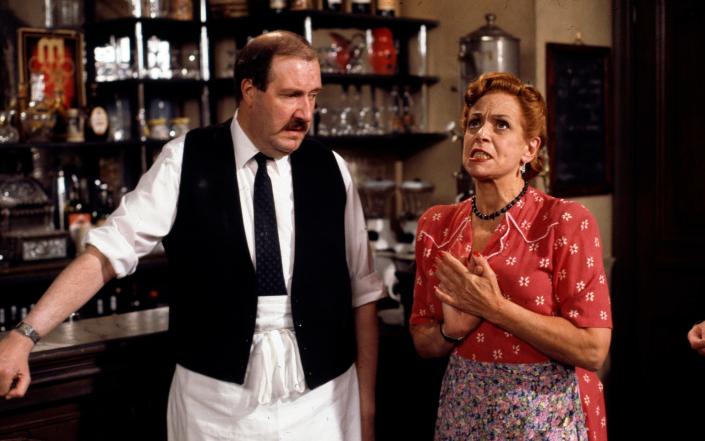
It seems like you could have read Brexit in the tea leaves of a nice strong cup of tea, or at least in the brilliant comedy programs of the 60s, 70s and 80s, without the need for a referendum. In a recent academic paper, Gavin Schaffer from the University of Birmingham analyzed daddy’s army, Fawlty Towers And Hello? Hello and argued that they were surprisingly subversive in their attitude towards Europe, foreshadowing Brexit.
They were TV series that reveled in cartoons, but they were cartoons in which the British felt they could recognize a part of themselves. daddy’s army offered the awkward and smug Captain Manwairing, for whom, on the whole, things turned out well in the end; Sergeant Wilson, well aware of his social superiority but too gentlemanly to challenge Mainwaring; and above all a team of eccentric volunteer soldiers lovingly bonded, despite all the irritation that has arisen between them – a picture, in other words, of the nation itself facing the greatest danger in its long history.
The other side of the coin is the image of the continental peoples. It’s not a word that’s used nowadays, but it expressed the question of whether Britain really was part of Europe or a miniature continent right next to it: “Fog in Channel. Isolated Continent”, headlined the famous newspaper. To Professor Schaffer’s prophetic announcements about Brexit in sit-coms, we can add evidence of wider attitudes towards Europeans. At school, my French textbook entitled The Living French, “Living French”, a clever title because it taught French grammar while presenting the daily life of supposedly typical French people, especially as seen by a bewildered British family who had to fight with French trains and hotels. A basic character was, of course, the seller of onions or garlic on his bicycle, wearing his beret.
But it was a time when far fewer people traveled abroad on vacation, and the vast majority never left Europe. What they saw of Europe was limited to France, Italy and Spain, the homeland of Manuel, the incompetent server of Fawlty Tours. Europe was exotic. People loved Paris because it was so “romantic”, “charming”, “elegant”, even though they complained about the rudeness of Parisians (since when they were apparently sent to charm school, because rudeness has largely disappeared).
We resigned ourselves to chaos because that was how the Mainlanders supposedly lived. I lived for a time in Italy and considered the announcement from the station that “the express train to Florence is traveling five hours late” as a daily experience. A letter could take three weeks just to cross Rome. Now it’s the other way around. The post works pretty well – there, not here. Italian trains are more punctual than British or even German trains – which at the time were known to ‘run on time’ as it was part of the German character.
All of this was complicated by the British refusal to master the languages properly. The French were considered particularly intolerant of those who murdered their language and remain particularly jealous of English’s advancement to the rank of world’s first language. A Churchillian pronunciation of French was what many could offer, or really wanted to offer. It was like that when we entered the Common Market, as it was then called.
But everything changed, not because we were now in Europe, but because we were drawn, like all countries, into the new global economy. A shopping street in Berlin looks like a shopping street in London or even parts of Tokyo. The other day I went to the newsstand at Valencia airport. Above the entrance it said “WH Smith”. Clothing retail chains know no national borders. The question now is not how foreign the rest of the world seems to us, but how boring it is. Distrust of Europe may have been born out of often comical suspicions of ‘Continentals’, but it has found new roots in distrust of the dull uniformity of the world’s cities and the desire to reclaim a distinct identity. And that wish surely has something to do with Brexit.
Broaden your horizons with award-winning British journalism. Try The Telegraph free for 1 month, then get a year for just $9 with our exclusive US offer.
